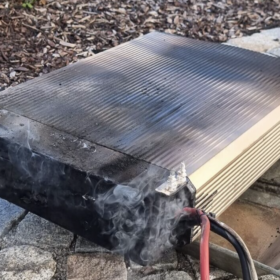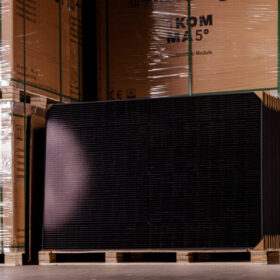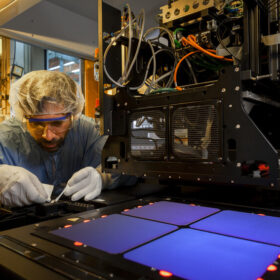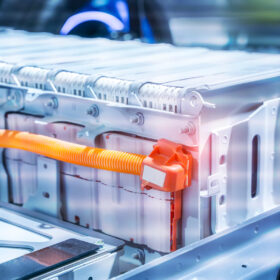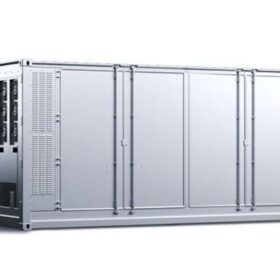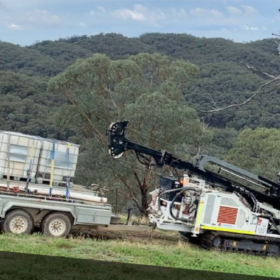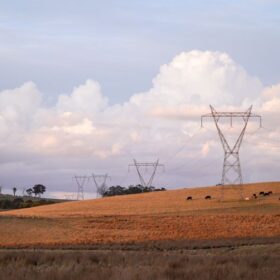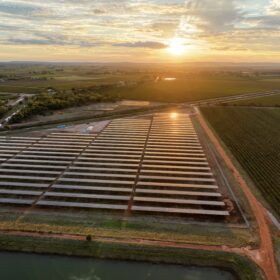Message framing techniques to boost solar sales
A Dutch-German research team has tested how a series of framed messages may be used to boost PV system sales, addressing both self-interest and environmental concerns, and has found that all the proposed messages are effective at promoting the purchase of solar panel installations.
New grid-scale battery design stacks up for Altech
Western Australian battery technology company Altech Batteries has updated the design of its 1 MWh sodium chloride battery energy storage system, paving the way for the modular units to be stacked three high, allowing for smaller project footprints that conserves valuable land area.
New research suggests renewables may not necessarily foster democracy, peace
Researchers in Germany have found that there is “no evidence” to support the notion that renewable energy generation fosters peace through prosperity. The trio of academics came to this conclusion after empirically testing the assumption that distributed renewable energies may reduce international conflicts and promote democratic values.
Investigators still uncertain about cause of 30 kWh battery explosion in Germany
A lithium iron phosphate (LFP) battery system recently exploded in a home in central Germany, preventing police and insurance investigators from entering due to the high risk of collapse. The explosion may have been preceded by off-gassing, but it remains unclear whether an external ignition source was the cause. Some scientists say thermal runaway may have triggered the blast.
UNSW student team to push for change in World Solar Challenge
The solar-powered Stella Terra test car from The Netherlands’ Eindhoven University has just completed a 1,000 kilometre test drive from northern Morocco to the Sahara. In Australia, the solar car racing team from the University of New South Wales says the real challenge is to find new ways to push the boundaries of solar car races.
Germany, Austria hit by multiple solar battery fires linked to LG
pv magazine has learned that five solar-related fires in Germany and Austria occurred in late September. Photographs show that two of the blazes were likely caused by residential batteries manufactured by LG.
1Komma5° announces TOPCon solar module factory in Germany
1Komma5° says it plans to start production at a new TOPCon solar module factory in Germany from next year. The Hamburg-based startup aims to achieve an annual production capacity of 1 GW, with further expansion targets set to reach 5 GW by the year 2030.
Researchers developing cheap hydrogen storage
Oxford Institute for Energy Studies researchers have developed a cost-effective material to absorb hydrogen at non-cryogenic temperatures, which they consider optimal for fuel cell storage systems.
Low-temperature processes to reduce silver use in tandem perovskite-silicon solar cells
Researchers from Germany’s Fraunhofer ISE developed new techniques to reduce silver consumption in tandem perovskite silicon solar cells and heterojunction silicon PV devices. The new processes relate to cell metallisation and module interconnection.
Lithium-ion batteries: NMC, LFP, LTO – what’s the difference?
With battery storage such a crucial aspect of the energy transition, lithium-ion (li-ion) batteries are frequently referenced but what is the difference between NMC (nickel-manganese-cobalt), LFP (lithium ferro-phosphate), and LTO (lithium-titanium-oxide) devices and their underlying chemistry?





